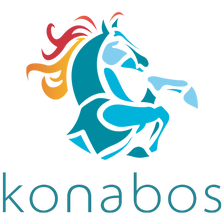Why do we need composable coaching?
John West - Senior Customer Advocate
22 Sep 2022
Composable systems represent a paradigm shift in the way that architects design systems. We need to take the time and create opportunities for developers to adapt their knowledge to these changes. We are all learning as we go, and we can be much more efficient if we prepare by making time for training and knowledge sharing.
Coaching: A multidirectional process
One of the best ways to learn is to educate each other. Coaching is a multidirectional process – each student can learn from the instructor and the other students, and the instructor always learns from the students as well. Each of us has developed what we consider to be common sense based on our unique set of experiences. Sharing that common sense in a group drives greater value from those experiences.
Why learning composable systems is different
Traditionally, developers took training to achieve certification with specific technologies, such as Microsoft Azure or a certain content management system. Because composable systems all conform to common architectural principles, these applications all share numerous foundational aspects. Rather than learning how individual systems implement those elements, we need to understand the fundamental theories themselves – what all composable systems have in common.
There will never be a mastery of our industry
The technology landscape is constantly shifting. We are all learning as we build, and each of us is an imposter at some level. There is no such thing as a full-stack developer if you consider that the stack starts with machine language. There will never be any mastery of our industry, because it will change tomorrow, and it is too big to fit into a single human brain anyway. We cannot be embarrassed to expose the gaps in our knowledge and understanding. We need people to curate and condense the most critical information into digestible chunks so that we’re not all stumbling into the same potholes or worse, trying to make sense of marketing materials.
We need to understand best practices in our industry, which depends on discussion and experience. We often learn best from specific examples. We don’t all want to stub our toes on the same objects.
Coaching foundations develops confidence
We need foundational knowledge to develop confidence in our approach to solutions, to justify our decisions in advance rather than rationalizing them afterward, and to grow our commitment to the composable approach. We need to understand core principles so that we can evaluate and select SaaS software vendors and to apply them to our own designs. A Composable Coach empowers architects and developers to help them implement optimal designs and achieve the greatest success. A small, early investment in coaching can lead to the greatest rewards and reduce the long-term costs of your solutions.
Coaching helps us avoid and mitigate risks
We need to avoid implementing stacked application architecture on composable systems, so that we avoid the complexities and challenges of the past. Without taking the time to understand significant shifts in systems architecture, we are likely to apply designs from past systems, recreating the problems we were trying to avoid.
We need to outpace our competitors. Some may already be ahead of us in the migration to composable, and we need to catch up. Doing this on our own, along with the need to maintain existing systems, may be more than most individuals and organizations can handle. The speed of change and innovation simply won’t afford you the time to learn it all on your own.
Coaching helps us to avoid the onslaught of marketing materials, the prevalence of ambiguous and misunderstood buzzwords, relentless distractions, and trends that could lead us in questionable directions. We need to hear each other’s true opinions.
In Closing
Coaching matters because it provides a groundwork of knowledge for organizations to ask vendors questions that can be uncomfortable. It is best to ask these questions in advance rather than learning their answers the hard way after the sale or worse, during implementation.
Unlike general training where we focus on a specific technology, often with a hypothetical use case, coaching can serve as an opportunity to think about, define, and refine requirements for actual applications to build. Focusing on meeting real-world requirements, leads to solutions that provide our customers with the greatest satisfaction and a tangible outcome at the end of the learning experience.

John West
I’ve served as CTO of Sitecore, founded Sitecore USA in 2004 and was there as we led the company to an investment round of over a billion dollars in 2016. I’ve also been blessed to be at the forefront of our space’s transition towards headless and composable technologies. I’m incredibly grateful for my success, but my proudest moments are when I hear from hundreds of customers and digital professionals who have benefited from the hard-won lessons I’ve shared over the years.
Like so many of the team at Konabos, I am a Sitecore MVP (the world’s only lifetime MVP, a humbling distinction that recognizes our commitment to making others better). Together, we’ve transitioned from a single-vendor monolithic landscape to the new, challenging, composable DXP paradigm that’s now upon us all. The DXP space keeps changing, but one thing remains constant: great architecture always wins the value battle in the long run, and people always matter.
I’ve learnt a lot during my journey and look forward to helping you and multiplying my impact as Chief Customer Advocate at Konabos as we all “Keep Exploring” together.



Share on social media